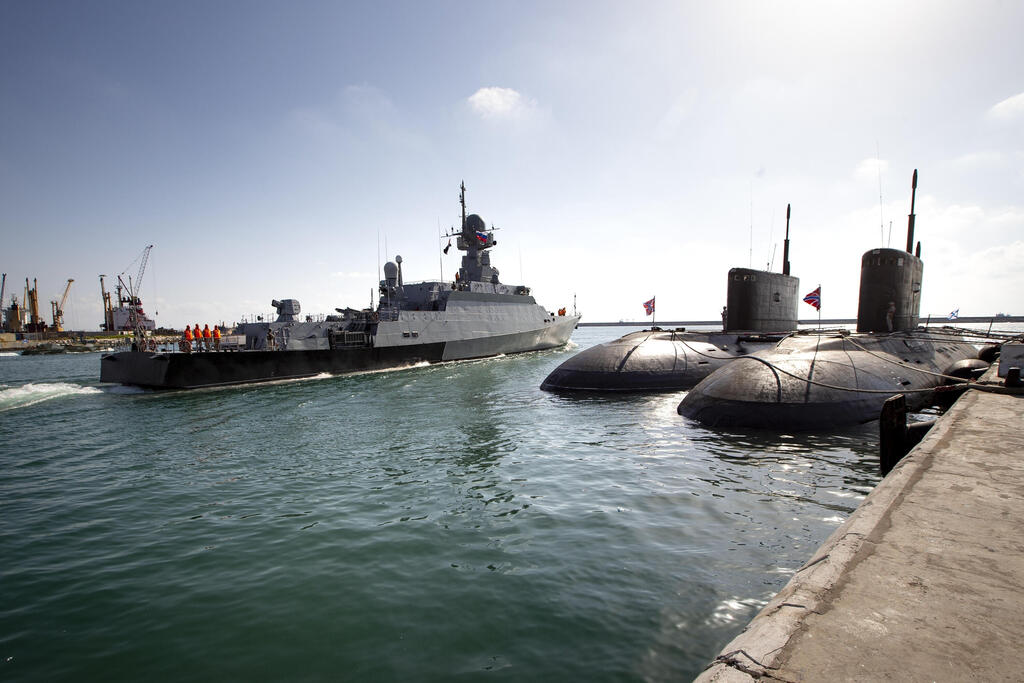Getting your Trinity Audio player ready...
Israel wants Russian forces to remain in Syria following the collapse of the Assad regime and has called for a demilitarized zone south of Damascus.
Israeli officials have been pressuring the administration of U.S. President Donald Trump to ensure Syria remains weakened by allowing Russia to maintain its military bases there—aiming to curb Turkish influence over Syria’s new rulers, Reuters reported, citing four sources.
3 View gallery


Benjamin Netanyahu, Ahmad al-Sharaa, Recep Tayyip Erdogan
(Photo: Marc Israel Sellem, Haj Suleiman / Getty Images, IDF, Abdulaziz Keta AFP, Alex Brandon/ AP)
Prime Minister Benjamin Netanyahu's announcement that IDF troops would remain in Syria sparked protests and condemnation from Damascus, which demanded an immediate Israeli withdrawal.
On Saturday, the outlawed Kurdistan Workers' Party (PKK) declared an immediate cease-fire, following a call from its jailed leader, Abdullah Ocalan, to lay down arms and dissolve the group. Turkish President Tayyip Erdogan’s government and the opposition pro-Kurdish DEM party both welcomed the move.
Ending the insurgency could help Syria’s new leadership consolidate control over Kurdish-held areas in the north.
Get the Ynetnews app on your smartphone: Google Play: https://bit.ly/4eJ37pE | Apple App Store: https://bit.ly/3ZL7iNv
Since Assad’s fall, Turkey has repeatedly demanded that the U.S.-allied Syrian Democratic Forces (SDF) and its YPG militia disarm, warning of military action otherwise. However, the SDF said that while Ocalan’s call was a positive step, it did not apply to them.
Syrians protest presence of IDF forces on Syrian soil
Israel conveyed its concerns to senior U.S. officials in February meetings in Washington and later discussions in Israel with U.S. congressional representatives, according to three U.S. sources and another person familiar with the matter. Two of the sources said Israel’s position was also outlined in a “white paper” circulated among some senior U.S. officials.
“Israel’s big fear is that Turkey will intervene to protect the new Syrian Islamist order, which could then serve as a base for Hamas and other militants,” said Aron Lund, a fellow at the U.S.-based think tank Century International.
Erdogan, leader of the Islamist-rooted AK Party, said last year that Islamic countries should unite against what he called "the growing threat of expansionism" from Israel.
It remains unclear to what extent the Trump administration is considering Israel’s proposals. The U.S. has provided little clarity on its Syria policy, leaving uncertainty over the future of sanctions and the presence of American forces in the northeast.






